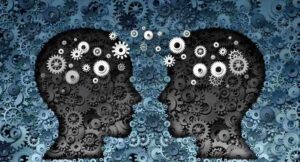C.G. Jung’s theories on psychology continue to captivate and inspire people even after several decades after his death. His work on the human psyche, the collective unconscious, archetypes, and the integration of spirituality and psychology has paved the way for a new understanding of the human mind and behavior. In this blog, we’ll dive into the world of Jungian psychology and explore its key concepts and ideas
Contents
What Is Jungian Psychology?
 Jungian psychology, also known as analytical psychology, is a psychological theory and therapeutic approach. It is developed by Swiss psychiatrist Carl Jung. It is based on the idea that the human psyche is composed of conscious and unconscious elements. And both play an important role in shaping our thoughts, emotions, and behaviors. Jung believed that the unconscious is made up of a collective unconscious shared by all humans. As well as a personal unconscious specific to each individual.
Jungian psychology, also known as analytical psychology, is a psychological theory and therapeutic approach. It is developed by Swiss psychiatrist Carl Jung. It is based on the idea that the human psyche is composed of conscious and unconscious elements. And both play an important role in shaping our thoughts, emotions, and behaviors. Jung believed that the unconscious is made up of a collective unconscious shared by all humans. As well as a personal unconscious specific to each individual.
Jungian psychology focuses on exploring the unconscious aspects of the psyche, with the goal of bringing unconscious material to consciousness in order to facilitate personal growth and development. This approach views the process of psychological growth as a journey of self-discovery. And emphasizes the importance of finding meaning and purpose in life.
This psychology also incorporates spiritual and mystical elements. And recognizes the importance of symbols, dreams, and other forms of nonverbal communication in the unconscious. It is often used in psychotherapy to help individuals better understand themselves, resolve psychological conflicts, and achieve greater psychological harmony.
What Are The Concepts In Jungian Psychology?
Jungian psychology is a rich and complex theory that encompasses several key concepts. Some of the most important concepts include:
- The Collective Unconscious: Jung believed that the unconscious is made up of a collective unconscious shared by all humans. That contains archetypes, or universal symbolic patterns and images, that influence our thoughts, emotions, and behaviors.
- Archetypes: Jung believed that archetypes are the building blocks of the collective unconscious and that they are universal symbols that are found in mythology, religion, art, and dreams. Examples of archetypes include the mother, the father, the child, the wise old man, and the hero.
- The Personal Unconscious: In addition to the collective unconscious, Jung believed that each individual has a personal unconscious. This contains repressed thoughts, feelings, and experiences that are unique to that individual.
- The Shadow: He believed that the shadow is the dark and unconscious aspect of the psyche that contains our repressed and negative traits and behaviors. He believed that it is important to acknowledge and integrate the shadow in order to achieve greater psychological harmony.
- The Anima/Animus: The anima is the feminine aspect of a man’s psyche, while the animus is the masculine aspect of a woman’s psyche. Jung believed that each individual has both an anima and an animus. And they play an important role in shaping our relationships and interactions with others.
- Individuation: Jung believed that the ultimate goal of psychological growth is individuation, which is the process of integrating all aspects of the psyche, including the conscious and unconscious, into a cohesive whole.
Overall, these are some of the key concepts in Jungian psychology, and they provide a framework for understanding the human psyche. And the process of psychological growth and development.
How Is It Helpful In Mental Well-Being?
Jungian psychology can be helpful for individuals seeking to improve their mental well-being in several ways:
- Self-discovery
Jungian psychology emphasizes the importance of exploring the unconscious aspects of the psyche in order to gain a deeper understanding of oneself. This process of self-discovery can help individuals gain insight into their thoughts, emotions, and behaviors, leading to greater self-awareness and personal growth.
- Resolving Psychological Conflicts
By exploring the unconscious, individuals can become aware of and resolve psychological conflicts that may be affecting their mental well-being. This can include conflicts between the conscious and unconscious, between the individual and society, or between the individual and their own shadow.
- Integration of the Shadow
Jung believed that it is important to acknowledge and integrate the shadow in order to achieve greater psychological harmony. By bringing unconscious material to consciousness, individuals can learn to accept and integrate their negative traits and behaviors, leading to greater self-acceptance and self-esteem.
- Finding Meaning and Purpose
Jungian psychology recognizes the importance of finding meaning and purpose in life. And encourages individuals to explore their values, beliefs, and spirituality in order to develop a deeper sense of self.
- Improving Relationships
Finally, this psychology also recognizes the importance of the anima/animus in shaping our relationships and interactions with others. By exploring the unconscious aspects of the psyche, individuals can gain a better understanding of their relationships and work to improve them.
These are some of the ways in which Jungian psychology can be helpful for individuals seeking to improve their mental well-being. While this can be a powerful tool for personal growth and development, it is not a substitute for professional medical treatment. If you are struggling with mental health issues, be sure to consult with a professional.
What Are The Benefits Of Using These Approaches to Psychotherapy?
 There are several benefits to using Jungian psychology approaches in psychotherapy:
There are several benefits to using Jungian psychology approaches in psychotherapy:
- Exploration of the Unconscious: By exploring the unconscious aspects of the psyche, individuals can gain insight into their thoughts, emotions, and behaviors. This ultimately leads to greater self-awareness and personal growth.
- Understanding of Symbols and Dreams: This psychology places a great emphasis on symbols and dreams, and recognizes their importance in revealing unconscious material. In psychotherapy, individuals can work with a therapist to explore their dreams and symbols, leading to greater understanding and integration of unconscious material.
- Emphasis on Personal Meaning: It recognizes the importance of finding meaning and purpose in life. And encourages individuals to explore their values, beliefs, and spirituality in order to develop a deeper sense of self. This emphasis on personal meaning can help individuals feel more fulfilled and satisfied with their lives.
- Holistic Approach: This takes a holistic approach to psychotherapy. It recognizes the interplay between the conscious and unconscious, the individual and society, and the individual and the spiritual dimension. This holistic approach can provide individuals with a more comprehensive understanding of their psychological struggles. And help them achieve greater psychological harmony.
- Gentle and Supportive Approach: Finally, these approaches are often considered to be gentle and supportive. And are well-suited for individuals who are seeking a non-judgmental and supportive therapeutic environment.
These are some of the benefits of using Jungian psychology approaches in psychotherapy. It is important to keep in mind that the suitability of any therapeutic approach will depend on the individual and their specific needs and circumstances. If you are seeking psychotherapy, it is important to work with a qualified mental health professional to determine the best approach for you.
What Are The Limitations Of This Psychology?
 Like any psychological theory, Jungian psychology has its limitations. Some of the limitations are listed below:
Like any psychological theory, Jungian psychology has its limitations. Some of the limitations are listed below:
- Subjectivity: Jungian psychology is based on the subjective experiences of the individual, and its interpretations and conclusions may be influenced by the individual’s personal biases and interpretations.
- Emphasis on the Unconscious: While the exploration of the unconscious is a key aspect of Jungian psychology, it may not be suitable for individuals who are not comfortable with exploring this aspect of their psyche.
- Lack of Empirical Evidence: Jungian psychology is based on case studies and personal observations. And there is limited empirical evidence to support its theories and practices.
- Complexity: Jungian psychology is a complex and multi-layered theory that can be difficult to understand and apply in practice. Especially for individuals with limited background knowledge in psychology.
- Limited Research: There has been limited research on the effectiveness of Jungian psychology approaches in psychotherapy. And further research is needed to fully understand its potential benefits and limitations.
These are some of the limitations of this psychology. Despite its limitations, it remains a popular and influential approach to psychology and continues to inspire and inform research and practice in the field.
Conclusion
In conclusion, Jungian psychology is a rich and complex theory that provides a unique perspective on the human psyche and the process of psychological growth and development. Its key concepts, such as the collective unconscious, archetypes, shadow, and individuation, offer a framework for understanding the unconscious aspects of the psyche. And the role they play in shaping our thoughts, emotions, and behaviors.
For more information, please contact MantraCare. Online therapy types include videoconferencing, phone sessions, messaging-based therapy, chat-based therapy, and therapy based on different problems. If you have any queries regarding Online Counseling experienced therapists at MantraCare can help: Book a trial therapy session


